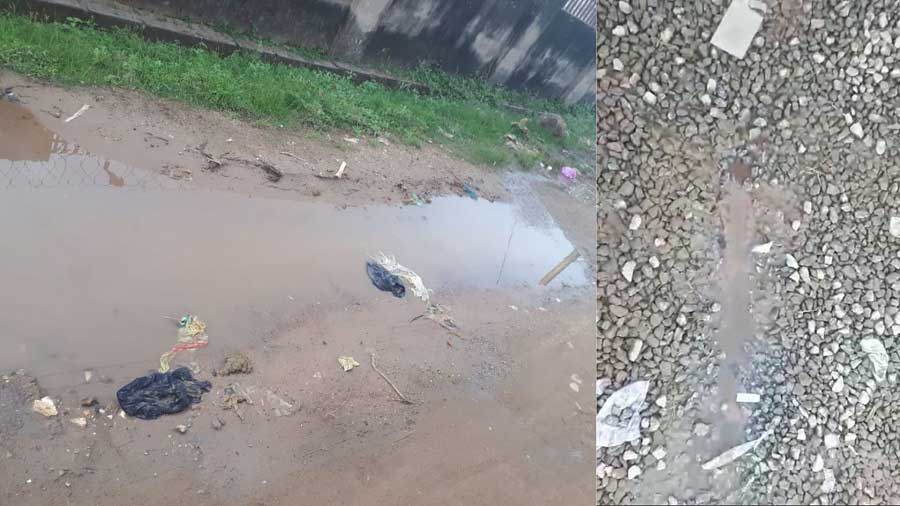The Federal Capital Territory Water Board, Gwagwalada office, has said illegal water connections by residents of Hajj Camp area was responsible for flooding of the roads by water from broken pipes.
There are several broken water pipes noticeable on roads in Hajj Camp which has led to water gushing gushing out and flooding streets in the area.
Advertisement
Isa Hamza, a resident of the area, who complained to THE WHISTLER on the flooding of the roads, however blamed vehicles carry heavy equipment as responsible for breaking the pipes.
“Anytime you see any tipper carrying cement, blocks, rods or any building material pass here, the next day you immediately see that there will be broken pipes and water will be everywhere.
“When the pipeline breaks, it affects the supply of water into our houses, and sometimes we stay like 3 days without water. We have to go and fetch water from our neighbourhood,” he said.
Another resident, Awwalu Ismail, however, said many of the broken water pipes were not installed deep in the ground deep enough to prevent vehicles from touching them.
Advertisement
Awwalu Ismail, also a resident, called on the FCT Administration to come to their aid and construct roads for them.
He said, “If the roads are in good shape, such things cannot occur. The pressure mounted on the roads cannot penetrate the pipelines and break them.
“We also need gutters constructed alongside the roads where the pipelines can pass through without getting to have any vehicle marching and breaking them.”
However, Choji Pam Dachu, Area Manager, Waterboard Gwagwalada, who claimed he was not aware of the broken pipes, blamed the residents.
“Why you see some of them not calling our attention is because those lines are illegal connections. They go to their various houses and the moment we come, we disconnect those pipes so that the people will own up, most especially those along that Hajj Camp. Most of them shy away from reporting those leakages because by the time we come we will disconnect them,” he said.
Advertisement
The manager said it will be difficult for the Board to detect the broken pipes because it usually give water to the affected areas early in the morning between 6- 8pm.
He said, “When we ration water to that area in the night, in the morning when we shut down the water, we cannot know whether the place is leaking or not, because it’s usually in the night that they have water.
“On the issue of these shallow pipes, there is supposed to be one major pipeline that everybody will hook from, but the majority of them come out towards that Hajj Camp. But the residents take water down inside their homes (illegally), then you find out that at the point where they dug those pipes and put pipes, they were not shallow.
“But because there is no tar on that road, when erosion comes, it washes away the surface sand, as it keeps on washing it, the pipes now become exposed. So even if we go and dig them down again, the tendency is that once it is rainy season it will still wash them.
“Another problem is, about 5 people will be connected on a line, and you will notice that 2 or 3 persons may pay their bills. So, it’s all their fault that these are happening. And the problem has been like that for more than 10 years.”
He promised that his staff would go and check the affected areas with a view to repairing the damages.
Advertisement
However, Engineer Akambi, a structural engineer who also lives in the area, blamed the development on the government for allegedly failing to provide pipe borne water to development areas.
“This causes laying of pipes by every individual from the nearest point of supply, rather than a singular big pipe supplying an area. What we usually have is multiple pipes conveying water to such an area,” he said.



